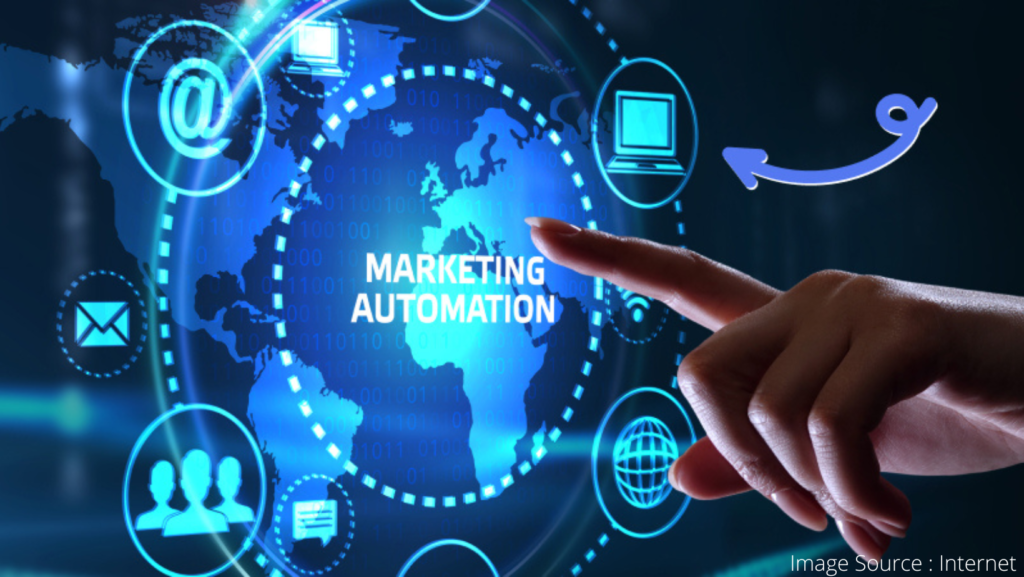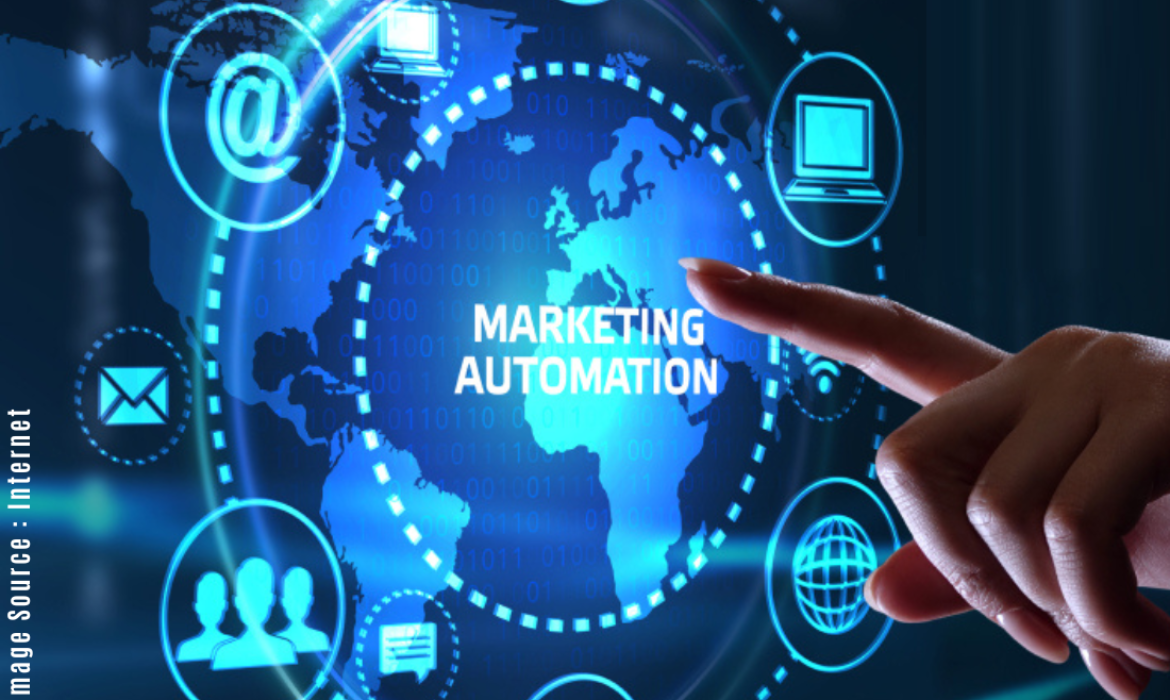Digital Marketing & Tech-Driven Strategies Transforming the Real Estate Industry
The real estate sector is rapidly evolving, driven by digital innovation and technology-led marketing strategies. Today’s buyers are more informed, research-oriented, and digitally active—making it essential for real estate brands to adopt smarter, data-driven approaches to stay competitive.
Digital- Buyer Journey Mapping
Homebuyers now begin their search online. From Google searches and property portals to social media and virtual site visits, digital touchpoints play a crucial role in influencing decisions. A strong online presence ensures visibility at every stage of the buyer journey.
Data-Driven Marketing & Lead Targeting
Advanced analytics, CRM tools, and AI-powered platforms help developers and brokers understand buyer behavior, preferences, and intent. This enables精准 targeting through Google Ads, Meta platforms, and programmatic advertising, resulting in higher-quality leads and better ROI.
Immersive Visual Experiences
High-quality AVs, drone videos, 3D walkthroughs, virtual tours, and AR/VR experiences allow buyers to explore properties remotely. These tools not only build trust but also shorten decision cycles by offering realistic property visualization.
Marketing Automation & CRM Integration
Automated lead nurturing through emails, WhatsApp, chatbots, and CRM systems ensures timely follow-ups and personalized communication. This reduces manual effort and significantly improves conversion rates.
Tech-Enabled Sales & Transparency
Digital documentation, online bookings, virtual meetings, and e-KYC have made the buying process faster and more transparent. Buyers appreciate seamless, tech-enabled experiences that save time and offer clarity.
Social Media & Content Marketing
Storytelling through reels, short videos, testimonials, blogs, and influencer collaborations helps projects connect emotionally with buyers. Consistent content builds brand credibility and long-term engagement.
A tech-driven, digital marketing approach is no longer optional in real estate—it’s essential. Developers and real estate brands that embrace technology, data, and innovation are better positioned to attract modern buyers, accelerate sales, and build future-ready brands.
Email Marketing: Best Practices to Boost Your Campaign’s Success
Email marketing is a powerful digital marketing strategy that involves sending targeted emails to a group of individuals who have opted in to receive communication from your business. It is an effective way to build relationships with customers, drive engagement, and generate sales. Here are some key tips for successful email marketing:
Build a quality email list
Building a quality email list is the foundation of successful email marketing. Instead of buying email lists, focus on organically growing an engaged and opt-in subscriber base. Offer valuable content or incentives to encourage people to subscribe to your emails. You can use sign-up forms on your website, social media channels, or landing pages. Remember to obtain explicit permission to send emails and provide an easy way for subscribers to opt-out if they wish.
Segment your email list
Segmentation is crucial for delivering personalized and targeted emails. Divide your email list into different segments based on demographics, behavior, purchase history, or engagement levels. This allows you to create highly relevant and personalized email content for each segment. By sending tailored messages, you increase the chances of engagement and conversions.
Craft compelling subject lines
The subject line is the first thing recipients see in their inbox. It plays a significant role in determining whether they open your email or not. Craft compelling subject lines that are concise, clear, and enticing. Use personalization by including the recipient’s name or referencing their previous interactions. Consider creating a sense of urgency, asking a question, or offering a benefit. Avoid misleading or spammy subject lines, as they can harm your reputation and lead to high unsubscribe rates.
Create valuable and relevant content
Your email content should provide value and relevance to your subscribers. Tailor your content based on their interests, needs, and stage in the customer journey. Share industry insights, tips, tutorials, or exclusive offers. Offer valuable information that solves problems or addresses pain points. Make your content easily scannable with headings, bullet points, and concise paragraphs. Use a conversational tone to establish a connection with your readers.
Use responsive and visually appealing designs
Ensure your emails are visually appealing and optimized for different devices, especially mobile. Use responsive design techniques to adapt the layout to various screen sizes. Keep your design clean and professional, with a clear hierarchy of information. Use eye-catching images, videos, or graphics that are relevant to your content. Be cautious with image-heavy emails, as some recipients may have images disabled by default. Include alt text for images and balance visuals with text.
Clear and prominent calls-to-action (CTAs)
Every email should have a clear and compelling call-to-action (CTA) that tells recipients what you want them to do next. Make your CTAs stand out by using contrasting colors, bold fonts, or buttons. Use actionable and persuasive language to encourage clicks. Ensure your CTA is relevant to the content of your email and leads to a landing page with a seamless user experience. Test different CTAs and placements to optimize their effectiveness.
Test and optimize your campaigns
Testing and optimization are essential for improving your email marketing performance. Conduct A/B tests to compare different elements of your emails, such as subject lines, CTAs, designs, or content. Test variables one at a time to identify what works best for your audience. Analyze key metrics like open rates, click-through rates, conversion rates, and unsubscribe rates to measure the impact of your changes. Use the insights gained to refine your strategies and continuously improve your campaigns.
Ensure deliverability and compliance
To ensure your emails reach the intended recipients, follow email deliverability best practices. Use a reputable email service provider (ESP) that maintains good relationships with ISPs and implements authentication protocols like SPF, DKIM, and DMARC. Regularly clean your email list to remove invalid or inactive email addresses. Monitor your sender reputation, avoid spam trigger words, and adhere to anti-spam regulations.
Remember, email marketing is an ongoing process that requires consistent effort and optimization. By understanding your audience, providing value, and leveraging personalization, you can create effective email campaigns that drive engagement, foster customer loyalty, and generate positive results for your business.
10 ways social media marketing can grow your small business
Social media marketing can be a powerful tool for businesses of all sizes to reach and engage with their target audience, increase brand awareness, and drive sales and conversions.
Increased Brand Awareness: Social media provides a platform for small businesses to reach a wider audience and increase brand awareness.
Increased Website Traffic: Social media can drive traffic to your website through links to your blog or product pages.
Improved Customer Engagement: Social media allows for direct communication between businesses and their customers, improving engagement and building stronger relationships.
Cost-Effective Marketing: Social media marketing can be a cost-effective way for small businesses to reach their target audience compared to traditional marketing methods.
Targeted Advertising: Social media platforms allow for targeted advertising, ensuring that your message reaches the right audience.
Increased Sales: By using social media to promote your products or services, you can increase sales and revenue for your business.
Competitive Advantage: Social media can give small businesses a competitive advantage by allowing them to compete with larger companies in their industry.
Real-Time Customer Feedback: Social media allows businesses to receive real-time feedback from customers, helping them improve their products and services.
Improved Customer Service: Social media provides a platform for businesses to provide customer service and address customer concerns in a timely manner.
Data and Analytics: Social media platforms provide data and analytics that allow businesses to track the effectiveness of their marketing efforts and make data-driven decisions.
Overall, social media marketing can provide numerous benefits for small businesses, helping them increase brand awareness, drive website traffic, engage with customers, and ultimately increase sales and revenue.
Real estate CRM software – A powerful tool to automate your sales
A customer relationship management (CRM) system can be a valuable tool for real estate agents to manage their leads, clients, and business operations. Here are some tips for using a CRM system effectively in real estate:
Organize your leads: Use your CRM system to organize your leads into different stages, such as hot leads, warm leads, and cold leads. This will help you prioritize your follow-up efforts and focus on leads that are most likely to convert.
Automate your follow-up process: Use your CRM system to automate your follow-up process with leads. Set up email templates, autoresponders, and drip campaigns to stay in touch with your leads and nurture them over time.
Track your interactions: Use your CRM system to track your interactions with leads and clients. This will help you stay organized and avoid missing important follow-up tasks.
Customize your communication: Use your CRM system to personalize your communication with leads and clients. Address them by name, use their preferred communication channels, and tailor your messages to their specific needs.
Monitor your performance: Use your CRM system to track your performance and measure the effectiveness of your marketing campaigns. Use analytics and reporting tools to identify trends, track conversion rates, and optimize your marketing efforts.
Integrate with other tools: Integrate your CRM system with other tools such as your website, email marketing platform, and social media accounts. This will help you streamline your workflows and make your marketing efforts more efficient.
Here are some steps you can take to automate your CRM and help your sales team convert leads faster:
Set up lead capture forms: Create lead capture forms on your website and social media pages to capture leads automatically.
Automate Leads distribution: Set up your CRM to automatically route new leads to the appropriate agent for follow-up based on project type, budget or location.
Use email templates: Create email templates for common follow-up scenarios, such as initial contact, property inquiries, and appointment reminders. This will help your agents save time and ensure that their messaging is consistent.
Automate lead nurturing: Set up drip campaigns to nurture leads over time with personalized messages and content. Use CRM automation to send relevant information based on the lead’s interests and behavior.
Appointment scheduling software: Integrate appointment scheduling software with your CRM to enable leads to schedule appointments directly with agents. This will help reduce scheduling friction and improve conversion rates.
Implement chatbots: Use chatbots to engage with leads in real-time and answer common questions. This will help your agents save time and provide faster responses to leads.
Track lead behavior: Use your CRM to track lead behavior, such as website visits, property searches, and email engagement. Use this data to personalize your follow-up and identify opportunities to convert leads faster.
Generate automatic reports to track sales team activities on leads:
Lead activity report: This report provides a summary of all lead activities, including when the lead was added to the system, who is assigned to the lead, and all interactions with the lead, such as phone calls, emails, and appointments. It can help you identify the progress of each lead and the activities performed by agents.
Pipeline report: This report provides a snapshot of the leads in each stage of the sales funnel. It can help you track the progress of leads and identify any bottlenecks in the sales process.
Conversion rate report: This report provides an overview of how many leads were converted into clients. It can help you identify which agents are most effective at converting leads and which areas of your sales process need improvement.
Lead source report: This report provides insight into which marketing channels are generating the most leads. It can help you optimize your marketing efforts and allocate resources effectively.
Agent performance report: This report provides an overview of each agent’s performance, including the number of leads they are working on, the number of appointments they have set, and the number of deals closed. It can help you identify top performers and areas for improvement.
By using a CRM software system effectively, you can manage your leads, clients, and business operations more efficiently and effectively. Remember, the key is to stay organized, automate your sales process, and personalize your communication with leads and clients.
How AI chatbots helping real estate industry grow faster & better ?
A chatbot is an automated software program designed to simulate conversation with human users, typically over the internet. Chatbots use natural language processing (NLP) and artificial intelligence (AI) technologies to understand and interpret user inputs and generate appropriate responses.
Chatbots can be designed to perform a wide range of tasks, including customer service, sales, marketing, and information gathering. They can be integrated into messaging platforms such as Facebook Messenger, WhatsApp, and Slack, as well as websites and mobile apps.
Chatbots can be programmed to respond to user inputs in a variety of ways, including providing information, answering questions, executing tasks, and even engaging in small talk. They can be designed to handle a high volume of user interactions, providing faster and more efficient customer service and support than traditional methods.
Overall, chatbots can help businesses to streamline their operations, improve customer engagement and satisfaction, and reduce costs associated with human labor.
Chatbots can be very helpful for the real estate industry. Here are some examples of how businesses in this industry can use chatbots:
Property Listings: Chatbots can provide customers with updated property listings based on their requirements, such as location, price range, and size.
Customer Support: Chatbots can provide 24/7 customer support, answering questions related to property listings, rent and lease agreements, and other general inquiries.
Appointment Scheduling: Chatbots can be used to schedule property viewings and appointments with agents for calls, meetings or site visits reducing the need for human intervention and increasing efficiency.
Property Information: Chatbots can provide customers with detailed information about the properties they are interested in, including property features, floor plans, and virtual tours.
Mortgage and Financing: Chatbots can provide customers with information about mortgage and financing options, helping them to make informed decisions about their property purchases.
Lead Generation: Chatbots can be used to capture leads from customers who are interested in a particular property, and follow up with them for further sales activities.
Automated Lead Capture: Chatbots can be programmed to capture leads automatically, by asking relevant questions and collecting information from customers who interact with them.
Lead Scoring: Chatbots can be designed to score leads based on their level of engagement and interest, allowing businesses to focus their sales efforts on the most promising leads.
Qualifying Questions: Chatbots can ask qualifying questions to help businesses determine if a lead is a good fit for their products or services. These questions can be designed to uncover information about the lead’s needs, budget, timeline, and more.
Pre-Sales Support: Chatbots can provide pre-sales support to leads, answering questions and providing information that can help them make informed purchasing decisions.
Follow-Up: Chatbots can be programmed to follow up with leads who have shown interest in a business’s products or services, providing additional information and nudging them towards a purchase.
Overall, chatbots can help businesses in the real estate industry to provide better customer service, increase efficiency, and improve customer satisfaction.
Let’s start with Dizitude chatbot solutions for real estate today.
How Marketing Automation is changing the business landscape

Marketing automation technology is increasingly becoming an essential component of today’s business landscape. Marketers are discovering new ways to leverage marketing automation and CRM software to improve customer care, and digital marketing campaigns are generally taking their organizations to the next level, armed with rapidly rising customer data and a consumer base that is more digitally savvy than ever before.
This blog will look at how marketing automation is already influencing the industry and how CRM marketing automation may help your business grow faster. Before we get there, let’s define CRM automation.
What Exactly Is CRM Automation?
CRM (customer relationship management) automation refers to the method of integrating software to assist businesses in better managing their customer interactions. Automating client contact operations, tracking customer interactions, including managing customer data are all examples of this.
CRM automation is already having an impact on corporate operations. For example, automating specific operations such as responding to customer emails and phone calls, has helped to reduce customer service expenses. It has also aided in improving transaction speed and accuracy by automating the process of recording sales information.
CRM automation is going to have an even greater impact on firms as it evolves. CRM automation may help to automate operations such as marketing campaigns and product releases in the future. Companies would be able to focus their resources on other vital projects rather than tracking these behaviors.
What Impact Does Marketing Automation Have on Business?
Marketing automation is transforming the way firms function by automating many of the operations associated with marketing campaigns. This automates much of the work that was previously performed by humans, freeing up time and resources for more strategic activities.
Accelerating the process of creating and executing campaigns is one of the most typical marketing automation changes in the business. Companies can now launch ads faster and track results more precisely than ever before thanks to automation. Automation also enables more precise targeting of promotional efforts, ensuring that your campaigns reach the appropriate people at the right time.
Furthermore, marketing automation can assist organizations in tracking their development and correctly measuring their success. This data can then be used to fine-tune future campaigns and improve overall business operations
The Benefits of a CRM Marketing Automation
A marketing automation system can have a wide range of effects on your company. Here are five major advantages to using one:
Enhanced Efficiency
With a system in place, you can more effectively track and measure your marketing activities. This can assist you in determining where you can improve efficiencies and where new methods may be required.
Improved Engagement
Will help you engage your customers more effectively. Automating chores like email marketing can boost the likelihood of your customers opening and respond to your messages. This will result in improved conversion rates and higher sales volumes with the help of email marketing.
Improved Customer Connections
With a system in place, you can more effectively track and measure your marketing activities. This can assist you in determining where you can improve efficiencies and where new methods may be required.
Improved Engagement
Will help you engage your customers more effectively. Automating chores like email marketing can boost the likelihood of your customers opening and respond to your messages. This will result in improved conversion rates and higher sales volumes with the help of email marketing.
CRM marketing automation is among the most recent and fascinating company trends. It enables businesses to automate their marketing activities, saving time and money.
Businesses can use marketing automation tools to track and analyze their marketing initiatives. This data can then be utilized to develop future campaigns, identify which campaigns are most effective, and track the outcomes of each campaign.
CRM marketing automation automates the creation of personalized emails, newsletters, as well as other marketing materials. This reduces the amount of time-consuming physical labor.
CRM marketing automation is transforming how firms sell their goods and services. It is a critical tool that may help businesses become more productive & cost-effective. If you want to learn more about CRM marketing automation or wish to automate your business CRM process get in touch with Dizitude Marketing automation experts.









